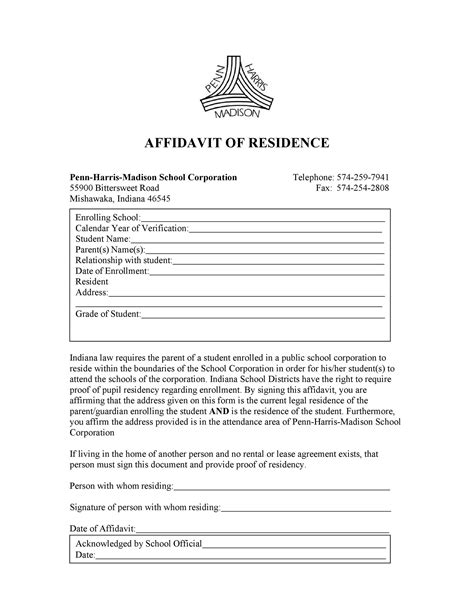Understanding Proof of Residency
Proof of residency is a document or set of documents that verifies an individual’s current address of residence. It is often required for various official purposes, such as obtaining a driver’s license, registering to vote, or applying for government benefits. The specific requirements for proof of residency vary depending on the entity or agency requesting it.

Commonly Accepted Forms of Proof of Residency
The following are some of the most commonly accepted forms of proof of residency:
- Utility bills (gas, electric, water, etc.): Bills that show the individual’s name and current address.
- Bank statements: Statements that display the individual’s name and address.
- Government-issued ID cards: Driver’s licenses, state ID cards, passports, etc.
- Tax returns: Federal or state income tax returns.
- Rent or mortgage receipts: Documents that indicate the individual’s name, address, and payment of rent or mortgage.
- Voter registration card: A card that shows the individual’s registered address.
- Vehicle registration: A document that lists the individual’s name, address, and registered vehicle.
Alternative Evidence for Proof of Residency
In some cases, individuals may not have traditional forms of proof of residency, such as utility bills or bank statements. In these situations, they can consider the following alternative evidence:
- Letters from government agencies: Official letters from agencies such as the Social Security Administration or the Department of Veterans Affairs that show the individual’s address.
- School transcripts or report cards: Documents that display the student’s name, address, and school attendance.
- Employer pay stubs: Stubs that include the individual’s name, address, and employer’s contact information.
- Notarized statements: Statements signed by a notary public that attest to the individual’s residency.
Benefits of Maintaining Proof of Residency
Having accessible proof of residency offers several benefits:
- Eligibility for government benefits: Many government programs and services require proof of residency to establish eligibility.
- Access to essential services: Proof of residency is often necessary to obtain services such as healthcare, driver’s licenses, and library cards.
- Secure legal documents: Official documents, such as passports and marriage licenses, often require proof of residency to ensure accuracy and prevent identity theft.
- Proof of ownership: For homeowners or renters, proof of residency can serve as evidence of ownership or tenancy.
Table 1: Common Forms of Proof of Residency
| Document | Description |
|---|---|
| Utility bills | Gas, electric, water, etc. showing current address |
| Bank statements | Displaying name and address |
| Government-issued ID cards | Driver’s licenses, state ID cards, passports |
| Tax returns | Federal or state income tax filings |
| Rent or mortgage receipts | Indicating payment and current address |
Table 2: Alternative Evidence for Proof of Residency
| Document | Description |
|---|---|
| Letters from government agencies | Social Security, Veterans Affairs, etc. confirming address |
| School transcripts or report cards | Displaying student’s address and school attendance |
| Employer pay stubs | Showing name, address, and employer’s information |
| Notarized statements | Signed by a notary public attesting to residency |
Table 3: Benefits of Maintaining Proof of Residency
| Benefit | Description |
|---|---|
| Government benefits eligibility | Establishing qualification for various programs and services |
| Essential services access | Driver’s licenses, healthcare, library cards |
| Secure legal documents | Ensuring accuracy and preventing identity theft |
| Proof of ownership | Verifying homeownership or tenancy |
Table 4: Tips for Maintaining Proof of Residency
| Tip | Description |
|---|---|
| Keep records in a secure location | Store copies or digitize important documents |
| Update information promptly | Notify relevant entities (bank, utilities) of address changes |
| Consider using a virtual mailbox | Receive mail without disclosing home address |
| Get creative in gathering evidence | Utilize alternative documents if necessary |
Conclusion
Proof of residency is a crucial requirement for various official purposes. Understanding the accepted forms of proof and maintaining accessible documentation is essential for individuals to establish their address of residence. By following the tips outlined above, individuals can ensure they have the necessary evidence to meet proof of residency requirements effectively.
